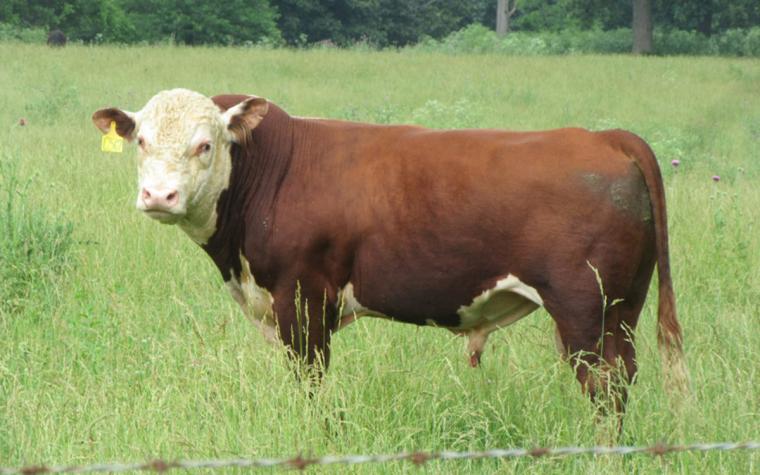STOCKTON, Mo. – Have you scheduled your bull breeding soundness exam? Patrick Davis, University of Missouri Extension livestock field specialist, suggests your bulls have a BSE prior to each breeding season.
“The bull BSE helps make sure bulls are ready to be successful during the breeding season,” says Davis. The BSE evaluates structure and fertility to make sure the bull is adequate for a successful breeding season. Furthermore, during the evaluation, it’s a good time to check for health issues and provide vaccinations to promote adequate health for the bull and the rest of the herd.
Components of the BSE
- Body condition score. Body condition score (BCS) evaluates fat cover on a scale of 1 (emaciated) to 9 (obese). Davis suggests bulls enter the breeding pasture at a BCS of 6, which is a smooth appearance throughout. This provides the bull adequate energy reserves to successfully breed females. For more information on BCS management, look at MU Extension publication G2230, Body Condition Scoring of Beef Cattle.
- Structural soundness. “Since bulls will be covering a lot of pasture and cows during the breeding season, structural soundness is important,” says Davis. One way to evaluate structural soundness is through foot scoring. Foot scoring evaluates the hoof through claw set and the pastern and heel length through foot angle. Both foot scoring parameters are evaluated on a 1 to 9 scale with an ideal range of 3 to 7. For more information on foot scoring, see MU Extension publication G2093, Screening Criteria for Show-Me-Select Replacement Heifers.
- Bull fertility. During the BSE, the veterinarian will evaluate sperm motility and morphology and make sure semen quality is adequate for optimum pregnancy rates.
- Bull health. “Since bulls are in the chute during the BSE, it’s a good time to update vaccinations,” says Davis. It’s also a good time to test and make sure newly acquired non-virgin bulls are negative for trichomoniasis. Davis suggests doing these things to promote optimum health in your cattle operation.
“Contact your veterinarian to schedule your bull’s BSE 30 to 60 days prior to the breeding season,” says Davis. This helps identify bulls with poor fertility and structure so you can cull them and replace them with sound bulls. This further helps your cowherd achieve optimum pregnancy rates, which helps operation productivity and profitability. Furthermore, some veterinary clinics will partner with pharmaceutical companies to provide rebates on vaccinations and dewormer if you schedule your bull’s BSE during their specific BSE day.
For more information on bull management in preparation for the breeding season, contact Davis at the MU Extension Center in Cedar County at 417-276-3313 or davismp@missouri.edu.
